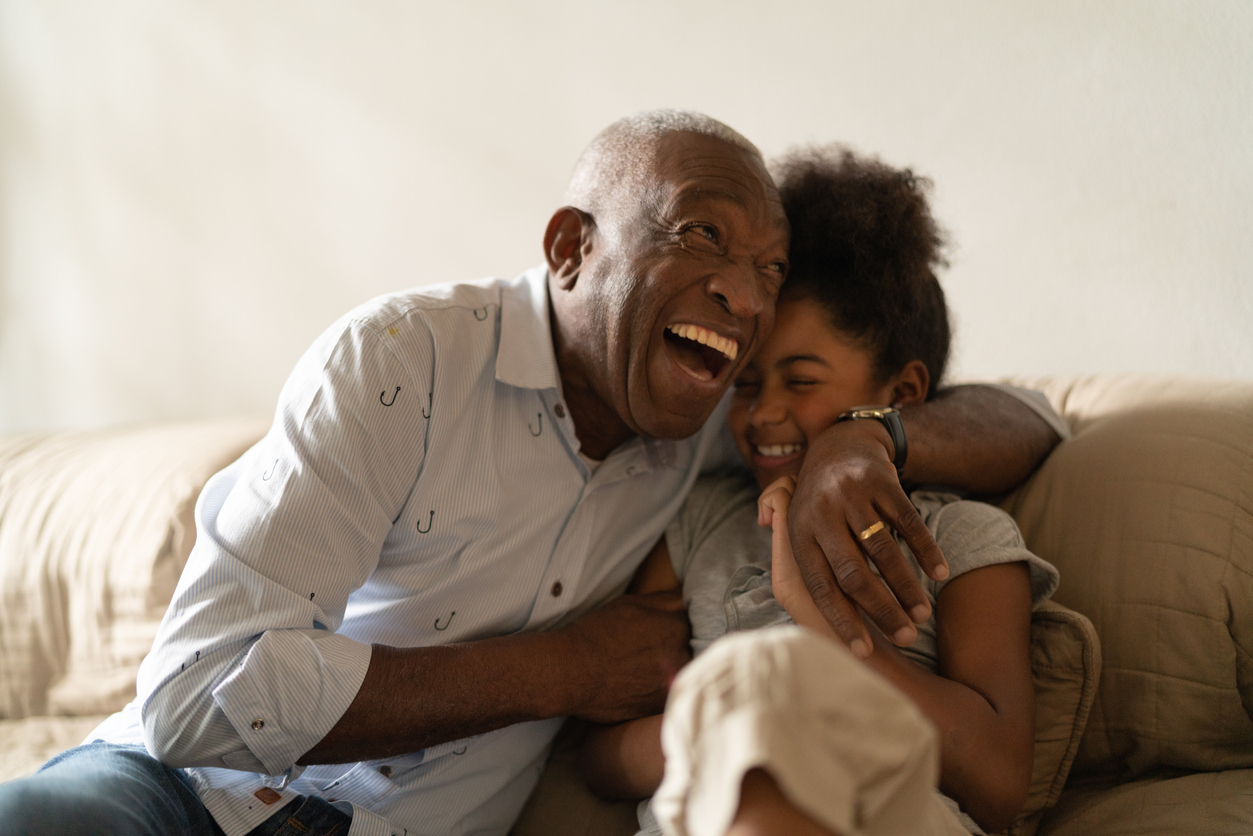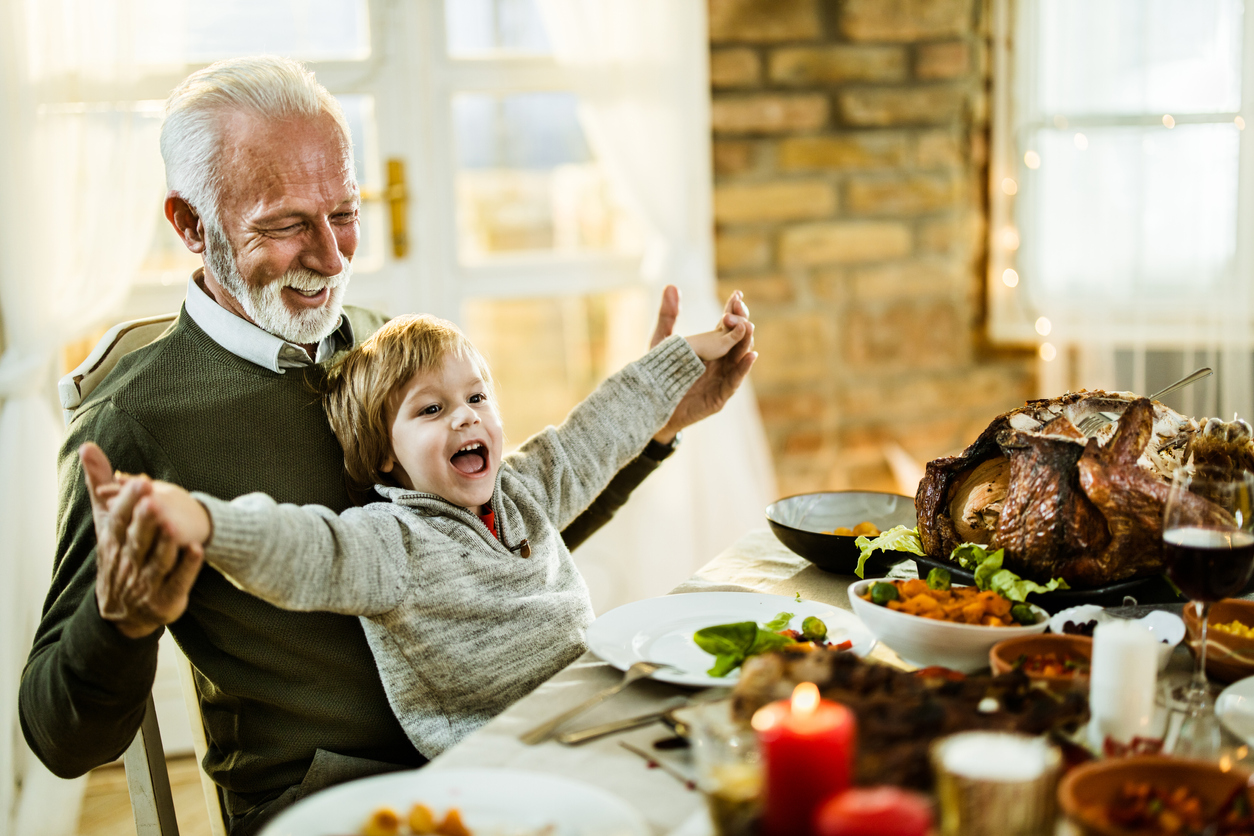
One mom is sharing a concerning story online this week. Her father-in-law recently died, and the whole family is really upset. Well, that is, except for her 5-year-old son. It turns out that the grandpa and his grandson were really close, so the fact that the kid isn't responding with a lot of emotion to his grandfather's death is really upsetting:
“When I say close I mean like, he was there every single weekend, FIL visited during the week. They were as close as two people can be.
“When FIL passed, I picked my 5yo up from school, and I told him I had something sad to tell him, and I told him. He immediately cried and continued to cry for about 20 minutes. Once he was around family again it subdued and he sorta just hasn’t really cared since.”
This has to be hard! Like the rest of us, children grieve in different ways. But to not express anything at all is kind of worrying, right?

The mom continues:
“He’s asked how it happened, and showed some sadness here and there. He’ll accidentally ask for him or bring him up then remember. The thing is, my son is extremely intelligent, I realize every parent says this but he’s an only child, only ever been around adults, so he thinks a lot different than kids.”

“He continues to tell me and MIL and SIL to not cry and ‘be brave like him’. Last night MIL broke down for a second and said ‘how will I live without him, I can’t’ and 5yo says ‘You can live without him. You have to, you have me and mommy and tata and SIL & her husband.’”

“I was so shocked and hurt that my 5yo is already thinking like this, but also extremely proud of him. I don’t ever want him to feel like he has to suppress these feelings for the sake of us, and I don’t want this to come back on him later on because he hasn’t dealt with it now.
“How do I help my son grieve, or is he just handling this better than me?”

Yikes! This has to be a really tough situation for the family to be in. Like the mom said, her son is only 5. It's hard to know how much can reasonably be expected from him. It some ways, it makes so much sense that the family members who knew her father-in-law longer will have bigger, more emotional reactions to his passing.

But a lot of experts agree that at this age, it might be tough for her son to fully grasp that death is a permanent thing. According to KidsHealth NZ:
“At this age children find it hard to understand that death is permanent. They are also at a stage of magical thinking, for example, thinking someone will come alive again or thinking somehow they made someone die. They understand separation though, and feel insecure and frightened when the familiar things around them change. This age group needs a lot of reassurance that they will be safe and looked after.”

So it's possible that her son sees the loss around him but doesn't totally quite understand how it impacts him as an individual. It's also possible he doesn't fully realize his grandfather is gone forever, even if he is an only child and spends a lot of time with adults. As a parent of an only child, I know personally that they can often seem wise beyond their years, but it doesn't mean they actually are.

And a commenter online backed up that thought process by replying:
“I don’t think you should be concerned about the way your son is handling this. No matter how intelligent he is, he’s still 5 and he processes emotions and big concepts like death differently than adults. The only thing I’d suggest is if he says something like ‘Don’t cry, be brave like me,’ you could explain to him that it is okay to cry when you feel sad or when you lose someone you love, and that does not mean you are not being brave.”

This feels like truly excellent advice that a lot of us could probably benefit from: It's OK to be emotional, and it's OK to cry. This is often especially great advice for boys and men, who are not always socialized to be as in touch with their feelings as girls and women are.

It could also be that her son is having a delayed reaction to the news, or that he'll keep processing it. He might seem fine now, and then concerns may pop up a few months down the road. And since he's only 5, his relationship with his grandfather will also become a more distant memory, which is another thing his family will need to confront.

KidsHealth From Nemours says that one of the most important things you can do when a child loses a loved one is to just be there for them:
“Every child reacts differently to learning that a loved one has died. Some kids cry. Some ask questions. Others seem not to react at all. That’s OK. Stay with your child to offer hugs or reassurance. Answer your child’s questions or just be together for a few minutes.”

The site also emphasizes the point that grief is a process. It's not over and done just because you want it to be, and it can linger for years. That, too, is totally normal:
“Grief is a process that happens over time. Be sure to have ongoing conversations to see how your child is feeling and doing. Healing doesn’t mean forgetting about the loved one. It means remembering the person with love, and letting loving memories stir good feelings that support us as we go on to enjoy life.”




